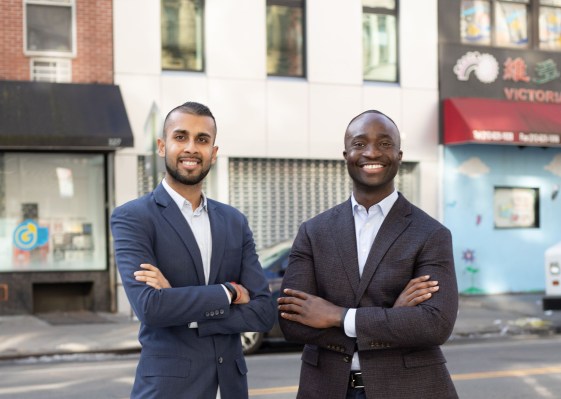
More than 100 million Americans spend an average of $1,100 a month on rent, but many don't get credit for paying on time.
According to a 2020 report by the Consumer Financial Protection Bureau, over 45 million people in the U.S. don't have credit scores. Due to their background and race, most of the demography are financially marginalized.
The company, which targets immigrant and minority groups and provides rent reporting and data solutions for credit building, said it has raised $130 million.
The investment gives four-year-old Esusu a valuation of $1 billion, placing it as one of the very few black-owned unicorns in the U.S.
African Americans have lower credit scores than other immigrants. Immigrants are put in a cycle of financial insecurity because of predatory lending. They don't have access to build credit, so they need strong credit scores to build wealth.
Esusu co-founders and co-CEOs Abbey Wemimo and Samir Goel experienced this financial exclusion when they were in immigrant homes. They started the company to build the credit scores of this marginalized group and leverage data to bridge the racial wealth gap.
34% of the largest landlords on the National Mult- Family Housing Council list work with the New York-headquartered fintech. Goldman Sachs, Related Companies, and Starwood Capital Group are its partners.
Esusu captures on-time rental payment data of renters who opt-in to its platform and reports to the three major credit bureaus to strengthen their credit scores. This way, renters can work their way to better credit scores over time while Esusu helps property owners mitigate against evictions.
The set-up fee is $3,500 and the monthly fee is $2 per unit. Renters pay an annual subscription fee of $50 to report their rental payment data to credit bureaus.
Esusu has a 600% year-over-year growth rate according to the founders. Over 2.5 million homes currently use its service, representing over $3 billion in Gross Lease Volume (GLV) across the U.S., up from 2 million homes and more than $2.4 billion in Gross Lease Value the company reported six months ago.
In April 2020, Esusu launched a rent relief fund after conducting a survey on its platform that showed thatPukiWikiPukiWikiPukiWikirs would not be able to pay their rent on time due to the Pandemic. The company raised $500,000 through impact investment funds.
Esusu has scaled the program to keep thousands of renters in their homes. The program has earned partners with more than $1 billion on their balance sheet.
Wemimo and Goel said in a statement that they founded Esusu to bridge the racial wealth gap and create more equitable financial opportunities for low-to-moderate-income households.
Esusu plans to use the funding to triple its team, expand through product innovation, and build the most comprehensive financial health platform in the market.
The lead investor in the Series A round of $10 million re-invested in the new financing round. Concrete Rose Capital, The Equity Alliance, Impact America Fund, Next Play Venture, Serena Venture, Sinai Venture, and TypeOne Venture doubled down as well. Esusu has raised over $150 million.
Esusu joins a small group of black-led and owned companies that have achieved the coveted unicorn valuation out of more than 900 companies. Calendly, a U.S. scheduling app, is valued at $3 billion, as is U.K.-based fintech Zepz at $5 billion.